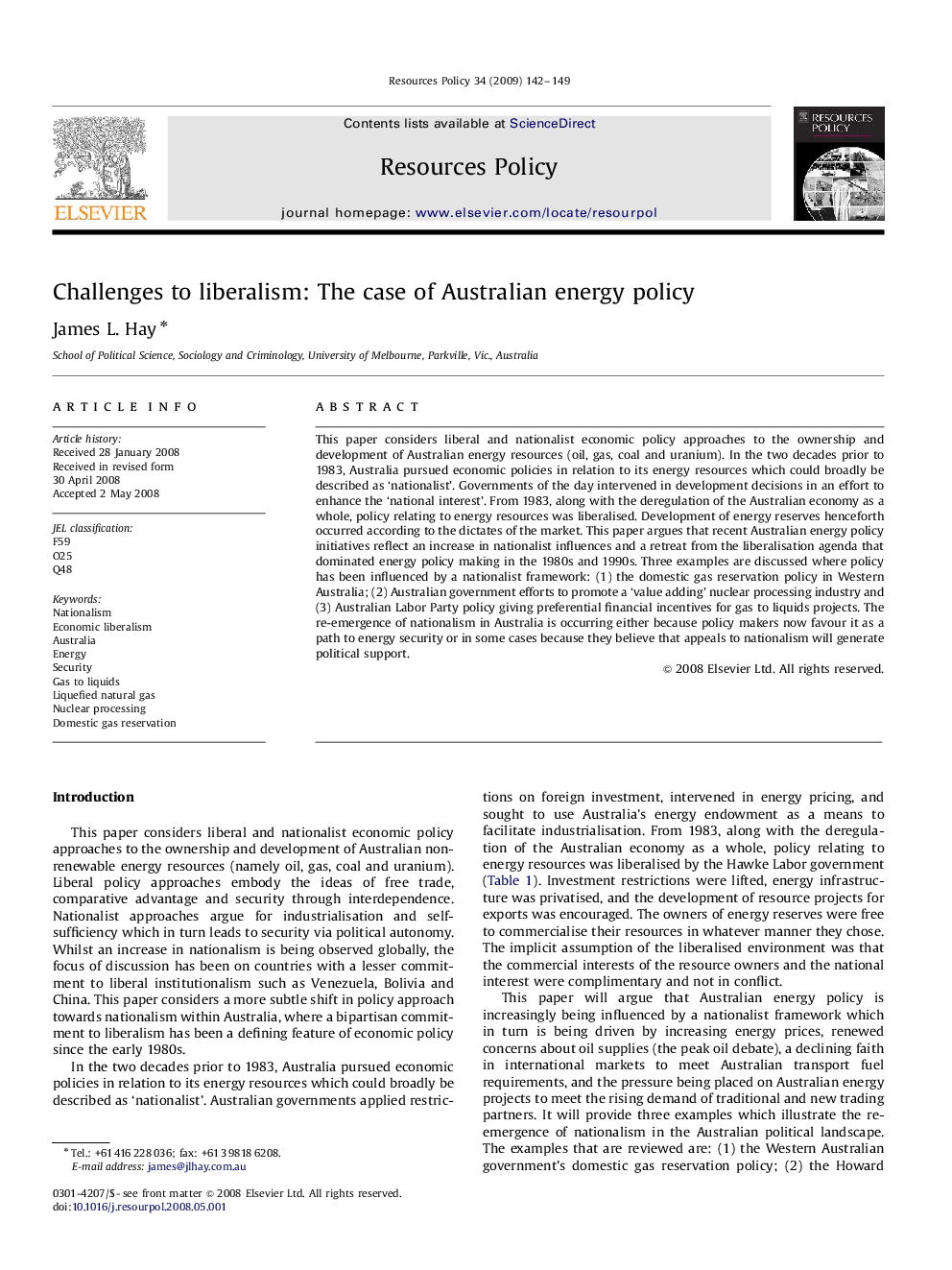| Article ID | Journal | Published Year | Pages | File Type |
|---|---|---|---|---|
| 985797 | Resources Policy | 2009 | 8 Pages |
This paper considers liberal and nationalist economic policy approaches to the ownership and development of Australian energy resources (oil, gas, coal and uranium). In the two decades prior to 1983, Australia pursued economic policies in relation to its energy resources which could broadly be described as ‘nationalist’. Governments of the day intervened in development decisions in an effort to enhance the ‘national interest’. From 1983, along with the deregulation of the Australian economy as a whole, policy relating to energy resources was liberalised. Development of energy reserves henceforth occurred according to the dictates of the market. This paper argues that recent Australian energy policy initiatives reflect an increase in nationalist influences and a retreat from the liberalisation agenda that dominated energy policy making in the 1980s and 1990s. Three examples are discussed where policy has been influenced by a nationalist framework: (1) the domestic gas reservation policy in Western Australia; (2) Australian government efforts to promote a ‘value adding’ nuclear processing industry and (3) Australian Labor Party policy giving preferential financial incentives for gas to liquids projects. The re-emergence of nationalism in Australia is occurring either because policy makers now favour it as a path to energy security or in some cases because they believe that appeals to nationalism will generate political support.
